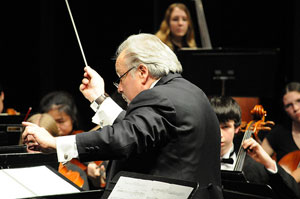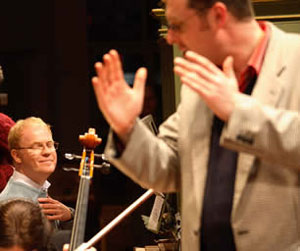Conductor
Tasks & duties

Conductors may do some or all of the following:
-
select, learn and interpret pieces of music
-
audition and select the musicians
-
guide the musicians during rehearsals
-
direct the musicians during performance
-
carry out administration tasks such as scheduling performances and planning concert programmes
-
work with orchestral/choral management
-
promote performances and concerts
Skills & knowledge

Conductors need to have:
-
knowledge of musical theory and techniques
-
knowledge of musical instruments
-
knowledge of voice techniques
-
knowledge of musical terms and symbols
-
knowledge of performance techniques
-
the ability to interpret various styles of music by different composers
-
the ability to conduct rehearsals and put together a concert
-
an understanding of the relationship between words and music
-
leadership and teamwork skills
-
performance skills
-
computer skills
Conductors who work with singers of foreign languages need to have knowledge of foreign languages, and an understanding of the International Phonetic Alphabet.
Entry requirements
To become a conductor you need to have a thorough grounding in music. You need to be proficient in playing an instrument, and to have completed music theory to at least Grade Six before you can audition for entry into a tertiary music performance degree.
Secondary education
Sixth Form Certificate or NCEA equivalent is preferred to enter tertiary training in music performance. Useful subjects include music, English, maths, languages, visual arts and art history.\
Training on the job
Skills are gained on the job. Many conductors first gain experience through playing an instrument in an orchestra or singing in a choir, which allows them to observe other conductors and gain a knowledge of different musical styles.
Useful experience
Useful experience for conductors includes:
-
playing more than one musical instrument
-
being able to play the keyboard
-
experience in reading and interpreting musical scores
-
teaching or tutoring music
-
experience playing music in a band or orchestra
-
experience singing in a choir
-
listening to music such as orchestras, chamber music groups and choirs performing a wide range of repertoire
-
composing music
-
observing other conductors at work at rehearsals and concerts
Related courses
Music
For more information, please refer to Career Services.
Document Actions
